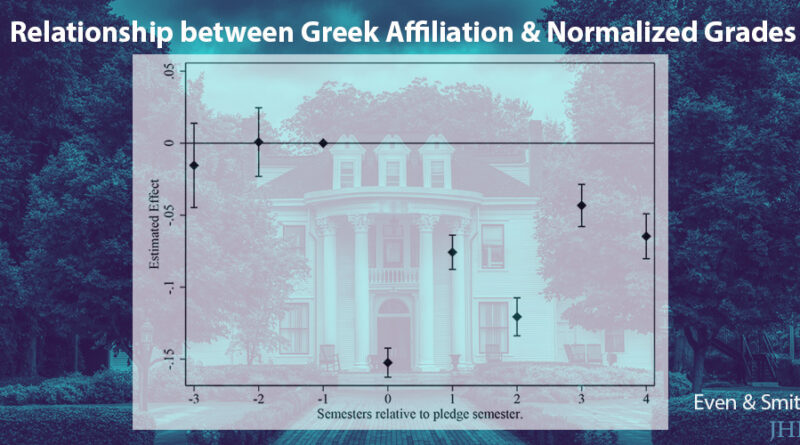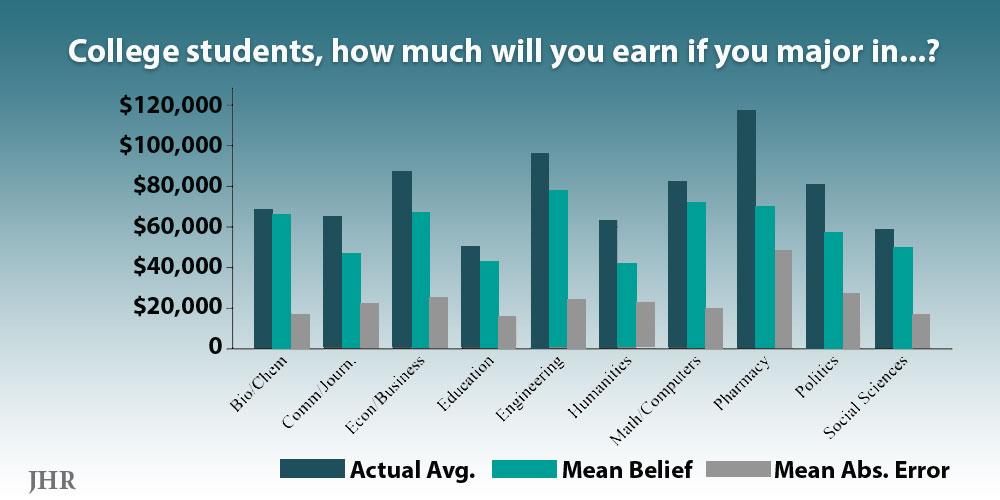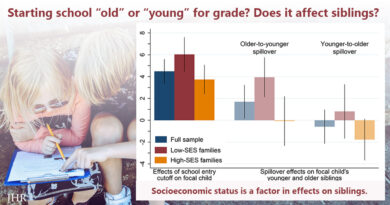Does Greek Membership in College Improve Academic and Career Outcomes?
Almost a fifth of U.S. college students join a Greek organization during college, yet we know strikingly little about the impacts of Greek affiliation on academic achievement or post-collegiate outcomes of members. Greek organizations often promise benefits beyond the college experience, but does pledging translate into success?
One challenge with measuring the impact of Greek life on members is that the average Greek student is very different from the average non-Greek student. For example, students in fraternities and sororities are more likely to be white and from affluent backgrounds. Because Greeks and their non-Greek counterparts likely differ in unobservable characteristics as well, any simple comparison of outcomes between Greeks and non-Greeks is misleading.
William Even and Austin Smith use an eligibility rule at a large public university requiring students to achieve a 2.5 GPA prior to joining a Greek organization to study how Greek affiliation affects educational and early career outcomes. In essence, they compare students who, at the end of their first semester in college, earn a GPA of 2.49 to students who earn a GPA of 2.5. These students have very similar backgrounds, but only the students with a 2.5 are eligible to join a Greek organization in their second semester.
The data for this university shows that students who are barely eligible after first semester are 25 percentage points more likely to affiliate with a Greek organization than their similar counterparts who just miss the cutoff.
Is pledging worth it? Even and Smith find that the marginally eligible students in their study earn lower course grades over the remainder of their academic careers. Moreover, these students do not achieve higher initial salaries or employment rates upon graduation. The results suggest that at least for the marginal Greek member, academic achievement declines and labor market outcomes are not improved.
Read the study in the Journal of Human Resources: “Greek Life, Academics, and Earnings,” by William E. Even and Austin C. Smith.
***
William Even is a professor emeritus of economics at Miami University (@Miami_Econ) and a research fellow at the Institute of Labor Economics (IZA). Austin Smith is an assistant professor of economics at Miami University and a research affiliate at the Institute of Labor Economics (IZA).




